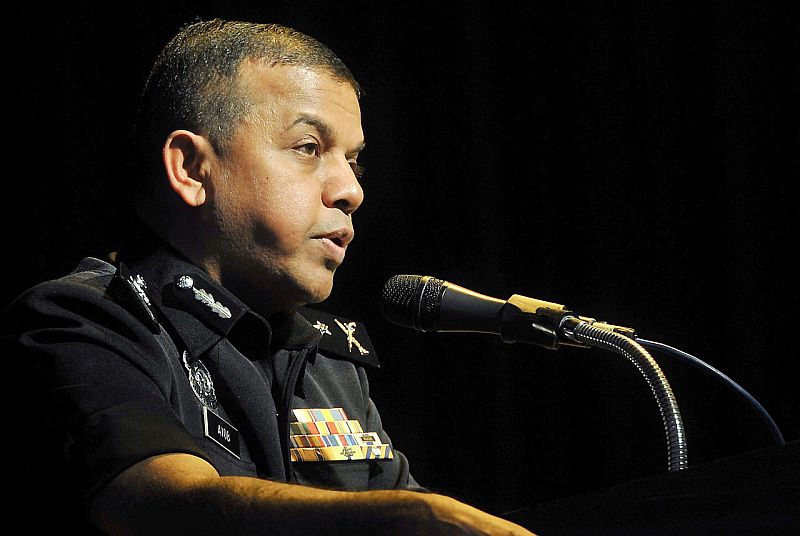KUALA LUMPUR, July 8 — Jemaah Islamiah (JI), the South-east Asian terror network once associated with al-Qaeda that was behind the 2002 Bali bombings, is back and poses a renewed threat in the region.
With members steeped in extremist doctrine and regarded as better trained than the al-Qaeda, the group has found new financial stability with steady income generated from the palm oil industry and a score of private religious schools to revive its militant activities that will likely include reviving its cells in Malaysia and Singapore, the South China Morning Post (SCMP) reported yesterday.
Bukit Aman’s Special Branch Counter Terrorism Division principal assistant director Datuk Ayob Khan Mydin Pitchay said there has not been any signal to date that the JI is planning attacks against Malaysia.
“We have destroyed JI activities since the end of 2001. However, JI is expected to become active again … especially if Abu Bakar Bashir is released from prison,” he told the Hong Kong daily, referring to the network’s former leader and hardline Indonesian cleric Abu Bakar Bashir.
“For now, there is no indication to show that JI is planning any attacks in Malaysia or that JI Indonesia is recruiting Malaysians,” Ayob was quoted saying.
Noor Huda Ismail, a visiting fellow at Nanyang Technological University, told SCMP that while JI is similarly a defunct organisation in Singapore, its ideology still has supporters there.
He too warned that a resurgent JI in Indonesia could revive cells in Singapore.
“And I am not being an alarmist here.”
Retired Indonesian police inspector-general Benny Mamoto who had investigated JI for over 10 years told SCMP that the current brains in JI and the person responsible for the terror outfit’s financial success is Para Wijayanto, 54, who was a fugitive since 2003.
SCMP reported Indonesian police disclosing the discovery of JI-owned palm oil plantations, which generate a hefty income, enabling the terror organisation to pay its “officers” a monthly wage of between 10 and 15 million rupiah following the arrest of Para, his wife and three associates last Monday.
“With large funds, the threat from JI will increase as this means it will be able to carry out all kinds of activities,” Mamoto, now the vice-director of Strategic and Global Studies at the University of Indonesia, was quoted saying.
In the past, JI relied on donations and armed robberies to raise funds for amassing weapons, explosives and logistics for their terror attacks.
Citing the Indonesia based research outfit; the Institute for Policy Analysis of Conflict, SCMP reported that at the height of its notoriety back in 2005, JI was so poor, that it was unable to support the families of its militant members who were caught and jailed.
Sofyan Tsauri, a former al-Qaeda member, told SCMP that JI’s capital raising efforts has been a long time in the making. He claimed the group invested in various projects, including a profitable cattle farm located in Sukabumi, West Java, which was started by Dulmatin, a senior JI leader who played a key role in the 2002 Bali bombings but was killed by Indonesian police in Jakarta nine years ago.
Tsauri told SCMP that JI also draws on revenue generated through the fees charges at the more than 60 religious boarding schools, kindergartens, primary, secondary and high schools it opened in Indonesia.
The schools which is reportedly attended by rich and working class Indonesians also serves as a pool for JI to scout out students “with potential”, according to the SCMP report.
At its height in the early 2000s, JI’s network covered Indonesia, Malaysia, Singapore, the Philippines and Australia.
The five countries were all grouped under regional divisions called Mantiqi or regional division, SCMP reported, with the Malaysian cell seen as the hub for JI’s international connections.



















